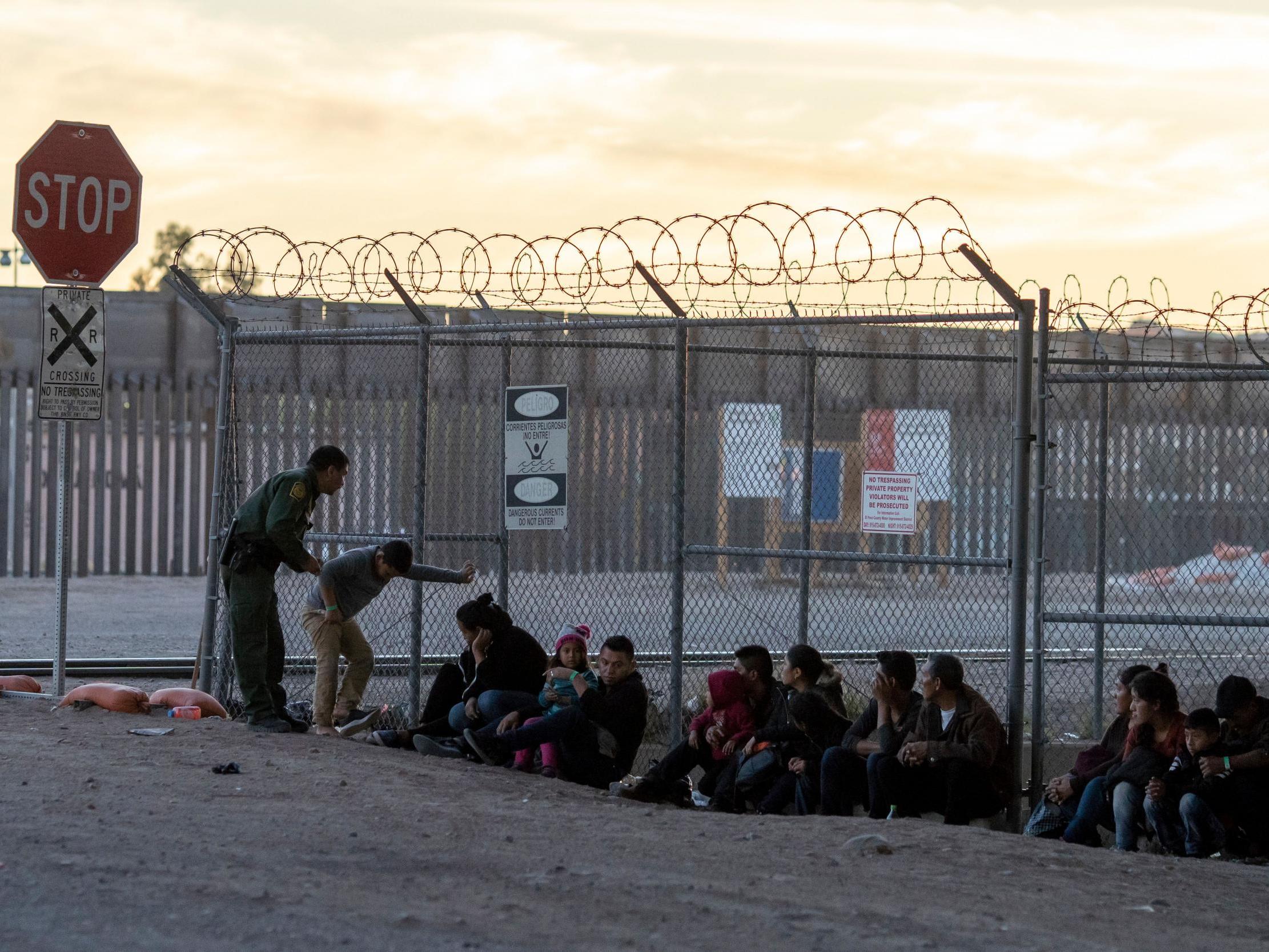Trump orders tough new restrictions that would turn 'asylum on its head'
Officials have 90 days to decide how to carry president’s orders out

President Donald Trump issued new restrictions on asylum seekers at the Mexican border on Monday – including application fees and work permit restraints – and ordered that cases in the already clogged immigration courts be settled within 180 days.
In a memo sent to Kevin McAleenan, the acting secretary of homeland security, and Attorney General William Barr, the president took another step to reshape asylum law, which is determined by Congress, from the White House.
The restrictions do not take effect immediately.
Mr Trump gave administration officials 90 days to figure out how his orders could be carried out.
They are among the first significant changes to asylum policy since Mr McAleenan replaced Kirstjen Nielsen as homeland security secretary and the president signalled he would take a tougher stance on the asylum-seekers swamping the border.
The administration has already restricted the number of migrants who can apply for asylum per day, who qualifies for asylum and where they must wait for a resolution – immigrations that have been the subject of multiple federal court cases.
Carrying out the president’s orders will be an early test for Mr McAleenan, who was named acting secretary this month.
“The purpose of this memorandum is to strengthen asylum procedures to safeguard our system against rampant abuse of our asylum process,” Mr Trump said in the memo.
The memo did not make clear how the plans would be carried out in immigration courts.
More than 800,000 cases are pending, with an average wait time of almost two years.
The Trump administration added to that backlog when it directed immigration authorities to reopen thousands of non-violent removal cases.
The memo specifically called for the authorities to set a fee for asylum-seekers filing their claims and for their work permit applications.
Migrants who have entered or tried to enter the United States illegally would also be barred from receiving a work permit until their claim is adjudicated.
“There’s a reason that we give people work permits while they are waiting for asylum, so that they can support themselves and don’t have to be depending on government assistance during that time,” Michelle Brané, the director of migrant rights and justice at the Women’s Refugee Commission.
This month, the White House took action over the rising number of border crossings when Trump forced out Ms Nielsen, who oversaw attempts to tighten the asylum process and the administration’s family separations policy.
The next day, the White House pushed out multiple other homeland security officials.

“The Coyotes and Drug Cartels are in total control of the Mexico side of the Southern Border,” President Trump said last night on Twitter. “They have labs nearby where they make drugs to sell into the U.S.
"Mexico, one of the most dangerous country’s in the world, must eradicate this problem now. Also, stop the MARCH to U.S.”
One of Trump’s White House aides, Stephen Miller, has berated homeland security officials over what the White House sees as a broken immigration system.
At the current pace of nearly 100,000 migrants each month, officials estimate more than 1 million people will have tried to cross the border within a year.
While most migrants pass their initial interview, only about 20 per cent of asylum-seekers ultimately win the right to live and work in the United States.
Applicants must show evidence of past persecution and establish a “well-founded” fear that they would face danger if they returned home.
Ms Brané said the new restrictions would turn “asylum on its head”.
“The entire idea of asylum is that it’s something that you need because you are fleeing some sort of violence or persecution,” she said, “and to then say that it’s only accessible to people who can pay a fee doesn’t make sense.”
Speaking of the Trump administration’s broader approach to asylum, she said, “All of it has been aimed at reducing the number of people who can access the system as opposed to reducing the need for asylum by addressing root causes.”
Mr McAleenan, a former commissioner for Customs and Border Protection, helped carry out the Trump administration’s “zero tolerance” policy to prosecute parents caught crossing the border illegally, which led to family separations.

But he has also emphasised the importance of aid to Central American countries – even though Trump cut State Department funding to Honduras, El Salvador and Guatemala this year.
The acting secretary is seen by many as someone who can appeal to both Democrats and Republicans on the hill.
He will have an opportunity on Tuesday, when he’s expected to testify in front of the House Appropriations Committee.
A spokesman for homeland security declined to comment on Monday.
The New York Times
Join our commenting forum
Join thought-provoking conversations, follow other Independent readers and see their replies
Comments
Bookmark popover
Removed from bookmarks